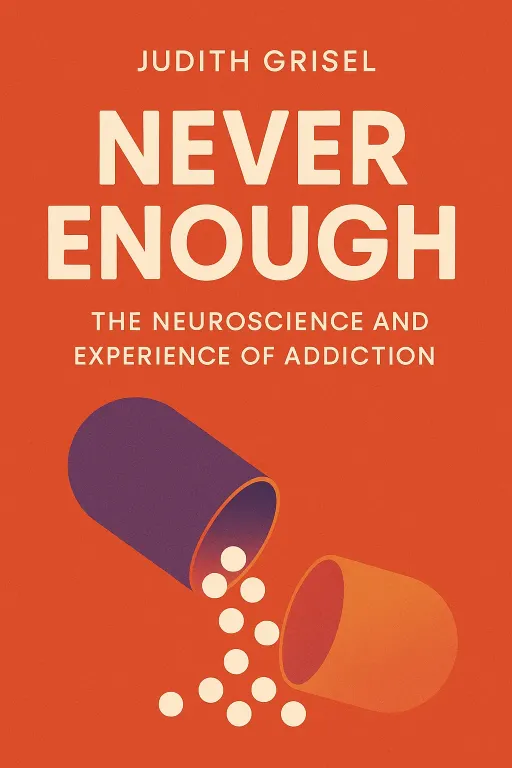
The Adaptation Trap: Why Our Brains Are Wired for 'Never Enough'
4 minGolden Hook & Introduction
SECTION
poooo9ooiooooo: That’s a powerful and, honestly, a very relatable idea, even for those of us who have never been in that situation. That feeling of chasing something, only to find the satisfaction is fleeting and you just need more... it feels universal.
poooo9ooiooooo: And then, I'm really curious to discuss the second part.
poooo9ooiooooo: Thanks, Celeste. I’m excited to get into it. The idea that our own biology could be setting us up for these traps is both daunting and fascinating.
Deep Dive into Core Topic 1: The Opponent-Process: Your Brain's Relentless Pursuit of 'Meh'
SECTION
poooo9ooiooooo: That's a great question. Years ago, it was definitely for the buzz, the energy. Now? If I'm honest, it's mostly to feel like a functional human being. It's to get back to zero, not to get to plus ten.
poooo9ooiooooo: Okay, that makes sense. A stable internal environment.
poooo9ooiooooo: So the B-process is the AC kicking on to fight the heat.
poooo9ooiooooo: Which is why I need the coffee just to feel normal. The coffee's A-process is now just fighting my brain's own B-process.
poooo9ooiooooo: Wow. That reframes so much. It makes me think about things beyond substances, like workaholism or even constantly checking social media. We chase the 'high' of a notification or completing a task, and our brain adapts by making our baseline state feel more anxious or bored. So we need to check again, not for joy, but just to quiet the restlessness. It's the same pattern.
poooo9ooiooooo: So the cost of that intense high is an equally intense potential low. The brain is always balancing its books, so to speak. As someone with a finance background, that analogy really clicks. There's no free lunch.
Deep Dive into Core Topic 2: The Context Trap: Why 'Where' You Are Is as Important as 'What' You Use
SECTION
poooo9ooiooooo: I'm familiar with the history, but I've never heard it discussed in the context of addiction.
poooo9ooiooooo: Which seems like a logical fear.
poooo9ooiooooo: Five percent? That's an astonishingly low number. Why?
poooo9ooiooooo: So the brain literally 'learns' a location or a ritual. The B-process gets tied to the environment.
poooo9ooiooooo: Oh no.
poooo9ooiooooo: Wow. So for the veterans, the entire country of Vietnam was the cue. When they left, the cue was gone. But for the author, the syringe was a portable cue she could encounter anywhere. That's... terrifying.
poooo9ooiooooo: This completely changes how I think about addiction and recovery. As an ISFJ, a 'Protector,' my instinct is to think about how to help someone. And we're so often told it's about willpower, about being strong. But this suggests that's only a tiny piece of the puzzle.
poooo9ooiooooo: It suggests that a huge part of recovery isn't just 'saying no,' but actively and consciously building a new life with new cues, new rituals, and new, healthier connections. It reframes addiction from a personal, moral failing to a problem of isolation and environment. And that feels so much more compassionate and, frankly, more actionable as a way to support someone. You're not just fighting them; you're helping them build a new world.
Synthesis & Takeaways
SECTION
poooo9ooiooooo: And second, that entire process gets learned and stamped onto our environment—our homes, our friends, our music, our rituals—creating the context trap, where the world itself can trigger the craving.
poooo9ooiooooo: It makes me want to be more mindful of my own, smaller 'opponent-processes.' Not just with substances, but with everything. With work, with social media, even in my relationships. What are the 'highs' I'm chasing, and what's the subtle 'low' that follows?
poooo9ooiooooo: I think so. The book suggests that awareness is the first step to freedom. Maybe the goal isn't to never feel good, but to understand the price of that feeling. To recognize the brain's accounting system. And maybe, to find more joy in the baseline, not just in the peaks. That feels like a really profound form of self-care.
poooo9ooiooooo: Thank you, Celeste. This was eye-opening.









